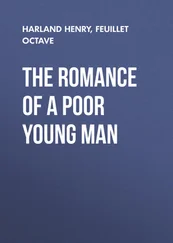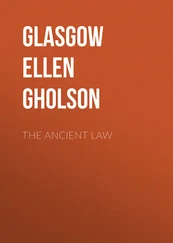Ellen Glasgow - The Romance of a Plain Man
Здесь есть возможность читать онлайн «Ellen Glasgow - The Romance of a Plain Man» — ознакомительный отрывок электронной книги совершенно бесплатно, а после прочтения отрывка купить полную версию. В некоторых случаях можно слушать аудио, скачать через торрент в формате fb2 и присутствует краткое содержание. Жанр: Технические науки, foreign_antique, foreign_prose, на английском языке. Описание произведения, (предисловие) а так же отзывы посетителей доступны на портале библиотеки ЛибКат.
- Название:The Romance of a Plain Man
- Автор:
- Жанр:
- Год:неизвестен
- ISBN:нет данных
- Рейтинг книги:4 / 5. Голосов: 1
-
Избранное:Добавить в избранное
- Отзывы:
-
Ваша оценка:
- 80
- 1
- 2
- 3
- 4
- 5
The Romance of a Plain Man: краткое содержание, описание и аннотация
Предлагаем к чтению аннотацию, описание, краткое содержание или предисловие (зависит от того, что написал сам автор книги «The Romance of a Plain Man»). Если вы не нашли необходимую информацию о книге — напишите в комментариях, мы постараемся отыскать её.
The Romance of a Plain Man — читать онлайн ознакомительный отрывок
Ниже представлен текст книги, разбитый по страницам. Система сохранения места последней прочитанной страницы, позволяет с удобством читать онлайн бесплатно книгу «The Romance of a Plain Man», без необходимости каждый раз заново искать на чём Вы остановились. Поставьте закладку, и сможете в любой момент перейти на страницу, на которой закончили чтение.
Интервал:
Закладка:
She detained me with a glance. "There's one thing they care about – dreadfully," she said.
"No, there ain't."
Without replying in words she went over to the stove, and standing on tiptoe, gingerly removed a hot plum cake, small and round and shaped like a muffin, from the smoking oven.
"I reckon they care about plum cake," she remarked tauntingly, and as she held it toward me it smelt divinely.
But my pride was in arms, for I remembered the cup of milk she had refused disdainfully more than three years ago in our little kitchen.
"No, they don't," I replied with a stoicism that might have added lustre to a nobler cause.
In my heart I was hoping that she would drop the cake into my basket in spite of my protest, not only sparing my pride by an act of magnanimity, but allowing me at the same time the felicity of munching the plums on my way back to the Old Market. But the next moment, to my surprise and indignation, she took a generous bite of the very dainty she had offered me, making, while she ate it, provoking faces of a rapturous enjoyment.
I was lingering in the doorway with a scornful yet fascinated gaze on the diminishing cake, when the pink-turbaned cook, who had gone out to empty a basin of pea shells, entered and resumed her querulous abuse.
"De bes' thing you kin do is ter clear out," she said, "you en yo' car'ots. He ain' fit'n fur you ter tu'n yo' eyes on, honey," she added to the child, "en I don' reckon yo' ma would let yo' wipe yo' foot on 'im ef'n she 'uz alive. Yes'm, Miss Mitty, I'se a-comin'!"
Her voice rose high in response to a call from the house, but before she could leave the kitchen, the door behind the little girl opened, and a lady said reprovingly: —
"Sally, Sally, haven't I told you to keep away from the kitchen?"
"Oh, Aunt Mitty, I had to come for my plum cake," pleaded Sally, "and Aunt Matoaca said that I might."
An elderly lady, all soft black and old yellow lace, stood in the doorway. Then before she could answer a second one appeared at her side, and I had a vision of two slender maidenly figures, who reminded me, meek heads, drooping faces, and creamy lace caps, of the wallflowers in the border outside blooming in a patch of sunshine close against the old grey house. At first there seemed to me to be no visible difference between them, but after a minute, I saw that the second one was gentler and smaller, with a softer smile and a more shrinking manner.
"It was my fault, Sister Mitty," she said, "I told Sally that she might come after her plum cake."
Her voice was so low and mild that I was amazed the next instant to hear the taller lady respond.
"Of course, Sister Matoaca, you were at liberty to do as you thought right, but I cannot conceal from you that I consider a person of your dangerous views an unsafe guardian for a young girl."
She advanced a step into the kitchen, and as Miss Matoaca followed her she replied in an abashed and faltering voice: —
"I am sorry, Sister Mitty, that we do not agree in our principles. There is nothing else that I will not sacrifice to you, but when a question of principle is concerned, however painful it is to me, I must be firm."
At this, while I was wondering what terrible thing a principle could possibly turn out to be, I saw Miss Mitty draw herself up until she fairly towered like a marble column about the shrinking figure in front of her.
"But such principles, Sister Matoaca!" she exclaimed.
A flush rose to the clear brown surface of the little lady's cheek, and more than ever, I thought, she resembled one of the wallflowers in the border outside. Her head, with its shiny parting of soft chestnut hair, was lifted with a mild, yet spirited gesture, and I saw the delicate lace at her throat and wrists tremble as if a faint wind had passed.
"Remember, sister, that my ancestors as well as yours fought against oppression in three wars," she said in her sweet low voice that had, to my ears, the sound of a silver bell, "and it has become my painful duty, after long deliberation with my conscience, to inform you – I consider that taxation without representation is tyranny."
"Sally, go into the house," commanded Miss Mitty, "I cannot permit you to hear such dangerous sentiments expressed."
"Let me go, Sister Mitty," said Miss Matoaca, for the flash of spirit had left her as wan and drooping as a blighted flower; "I will go myself," and turning meekly, she left the kitchen, while Sally took a second cake from the oven and came over to where I stood.
"I'll just put this into your basket anyway," she remarked, "even if you don't care about it."
"Come, child," urged Miss Mitty, waiting, "but give the boy his cake first."
The cake was put into my hands, not into the basket, and I took a large, delicious mouthful of it while I went by the meek wallflowers standing in a row, like prim maiden ladies, against the old grey house.
CHAPTER VII
IN WHICH I MOUNT THE FIRST RUNG OF THE LADDER
As I passed through the gate and turned down Franklin Street under a great sycamore that grew midway of the pavement, I vowed passionately in my heart that I would remain "a common boy" no longer. With the plum cake in my hand, and the delicious taste of it in my mouth, I placed my basket on the ground and leaned against the silvery body of the tree, with my eyes on Samuel, sitting very erect, with his paws held up, his tail wagging, and his expectant gaze on my face.
"What can we do about it, Samuel? How can we begin? Are we common to the bone, I wonder? and how are we going to change?"
But Samuel's thoughts were on the last bit of cake, and when I gave it to him, he stopped begging like a wise dog that has what he wanted, and lay down on the sidewalk with his eyes closed and his nose between his outstretched paws.
A gentle wind stirred overhead, and I smelt the sharp sweet fragrance of the sycamore, which cast a delicate lace-work of shadows on the crooked brick pavement. Not only the great sycamore and myself and Samuel, but the whole blossoming city appeared to me in a dream; and as I glanced down the quiet street, over which the large, slow shadows moved to and fro, I saw through a mist the blurred grey-green foliage in the Capitol Square. In the ground the seeds of the new South, which was in truth but the resurrected spirit of the old, still germinated in darkness. But the air, though I did not know it, was already full of the promise of the industrial awakening, the constructive impulse, the recovered energy, that was yet to be, and in which I, leaning there a barefooted market boy, was to have my part.
An aged negress, in a red bandanna turban, with a pipe in her mouth, stopped to rest in the shadow of the sycamore, placing her basket, full of onions and tomatoes, on the pavement beside my empty one.
"Do you know who lives in that grey house, Mammy?" I asked.
Twisting the stem of her pipe to the corner of her mouth, she sat nodding at me, while the wind fluttered the wisps of grizzled hair escaping from beneath her red and yellow head-dress.
"Go 'way, chile, whar you done come f'om?" she demanded suspiciously. "Ain't you ever hyern er Marse Bland? He riz me."
I shook my head, sufficiently humbled by my plebeian ignorance.
"Are the two old ladies his daughters?"
"Wat you call Miss Mitty en Miss Matoaca ole fur? Dey ain' ole," she responded indignantly. "I use'n ter b'long ter Marse Bland befo' de war, en I kin recollect de day dat e'vy one er dem wuz born. Dey's all daid now cep'n Miss Mitty en Miss Matoaca, en Marse Bland he's daid, too."
"Then who is the little girl? Where did she come from?"
There was a dandelion blooming in a tuft of grass between the loosened bricks of the pavement, and I imprisoned it in my bare toes while I waited impatiently for her answer.
Читать дальшеИнтервал:
Закладка:
Похожие книги на «The Romance of a Plain Man»
Представляем Вашему вниманию похожие книги на «The Romance of a Plain Man» списком для выбора. Мы отобрали схожую по названию и смыслу литературу в надежде предоставить читателям больше вариантов отыскать новые, интересные, ещё непрочитанные произведения.
Обсуждение, отзывы о книге «The Romance of a Plain Man» и просто собственные мнения читателей. Оставьте ваши комментарии, напишите, что Вы думаете о произведении, его смысле или главных героях. Укажите что конкретно понравилось, а что нет, и почему Вы так считаете.












